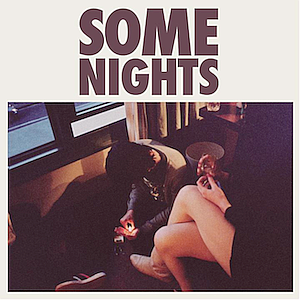 The whole music piracy debate is as old as the year 2000, but this new case with Jammie Thomas-Rasset is perhaps the meanest the RIAA has been in a good long while.
The whole music piracy debate is as old as the year 2000, but this new case with Jammie Thomas-Rasset is perhaps the meanest the RIAA has been in a good long while.
A mother of four, Thomas-Rasset has been found guilty of violating copy right laws on 24 songs she allegedly shared on the Kazaa file sharing network. The recording companies are asking for $1.92 million and really being vicious about it, espeically considering they can't prove Thomas-Rasset herself shared the files, only that someone using her computer did.
Whatever your specific stance on piracy is, this case should be unsettling for a few reasons. For one, shouldn't the punishment fit the crime? Even if Thomas-Rasset is responsible for sharing these files (Not even downloading the material in question, just seeding it), I doubt she caused $1.92 million worth of damages to these labels and these artists. Perhaps this is my naive 21 year old self, but there is a huge incongruity between the level of harm the crime has done and the severity of its punishment.
This might be an issue more closely aligned with our justice system, but it still boils down to the basic question: How does a big company suing a Minnesota mom for millions really stop anyone from pirating copyright protected material?
The short answer is that it doesn't. Internet users have shown that frivolous lawsuits such as this one push music pirates to find other ways to circumvent the law. Whether it's torrents, music forums, or abusing Mega Upload it's clear that hammering the consumer (The people that you want to buy the darn CDs in the first place) isn't going to help end music piracy.
I wrote a paper last year for my ethics class and I ended it by basically saying the RIAA is going about this the wrong way. Piracy is a symptom of the problem, not the problem itself. An album should not cost $20, and the fact that the price is so inflated is the big reason why people a pirating in the first place. There needs to be compromise on the part of the record label as well as the consumer to find a happy medium for affordable music and fair profit, rather than companies lashing out at the people that end up supporting them.
Ultimately, it comes down to common sense: Lawsuits over music aren't going make consumers want to buy it.
Oh, and using Kazaa is clearly a bad idea. Duh.
How Does British Athletic Performance Impact National Identity?
-
Influence of Athletic Performance on National Identity Athletic performance
deeply intertwines with national identity, shaping how citizens feel about
thei...
3 months ago














0 comments:
Post a Comment